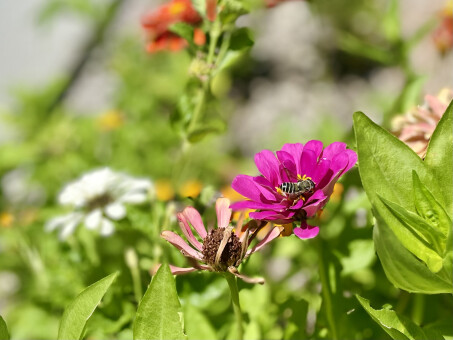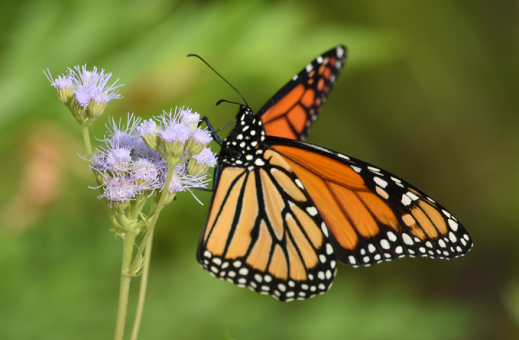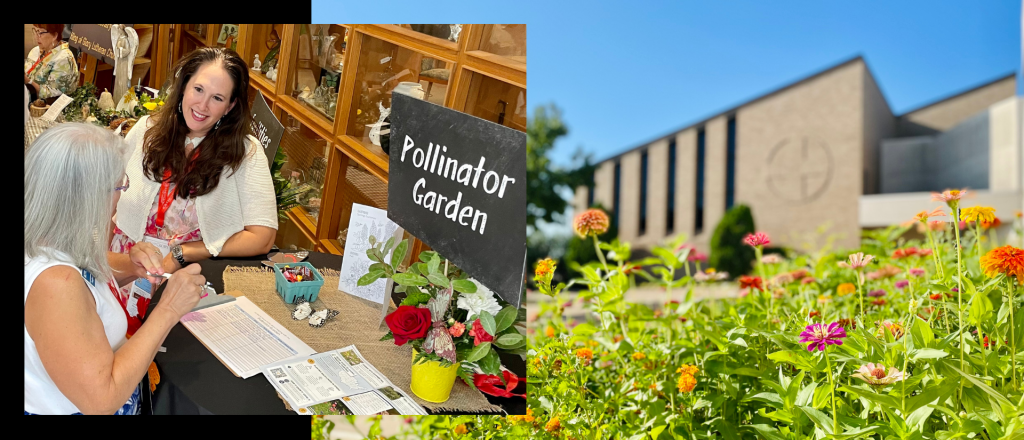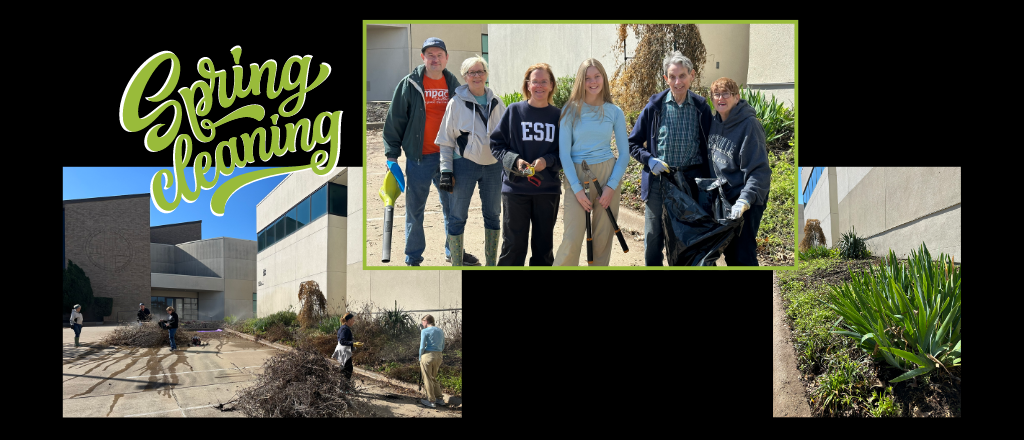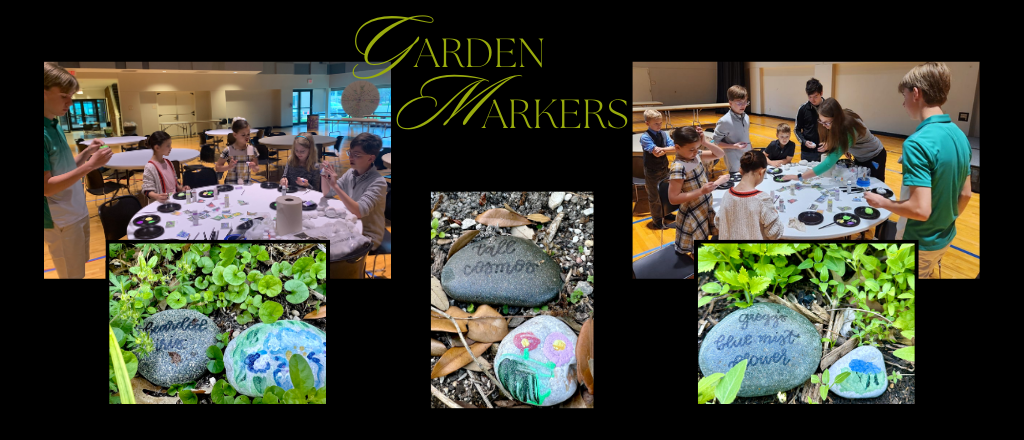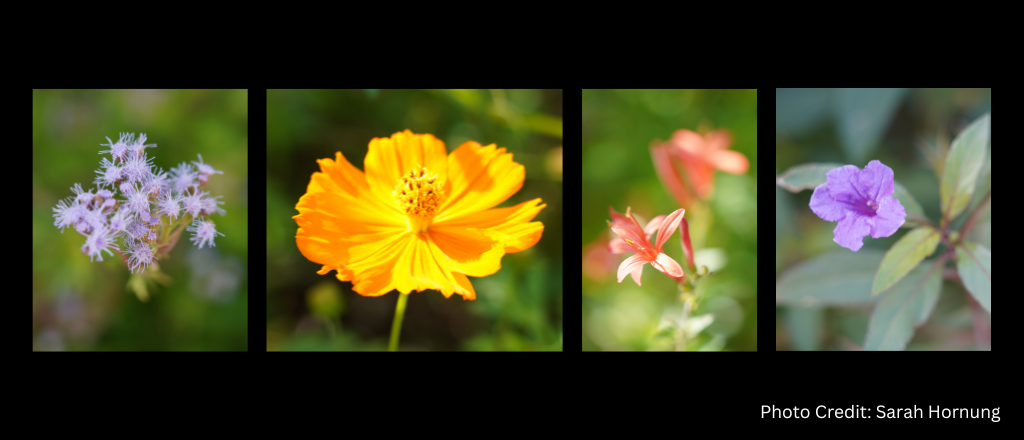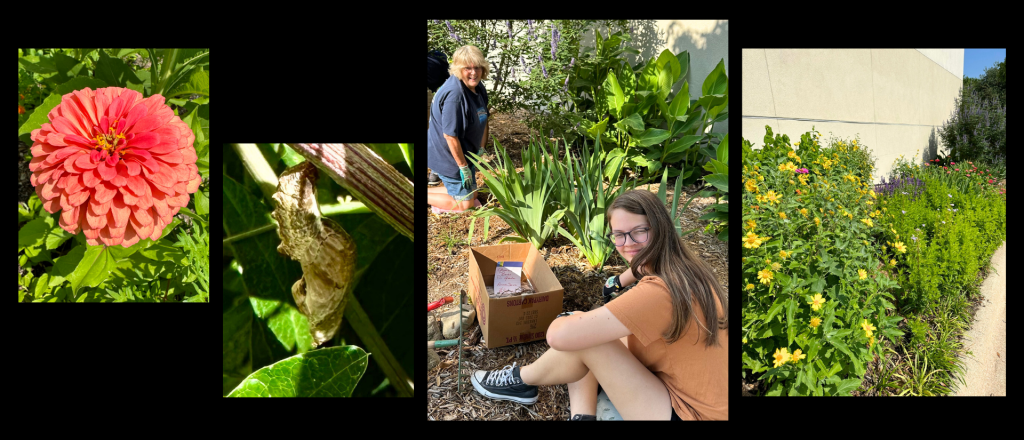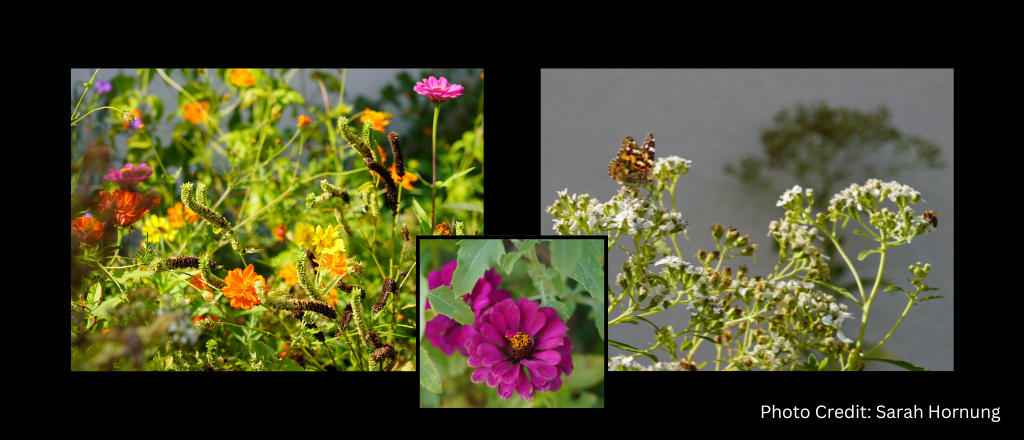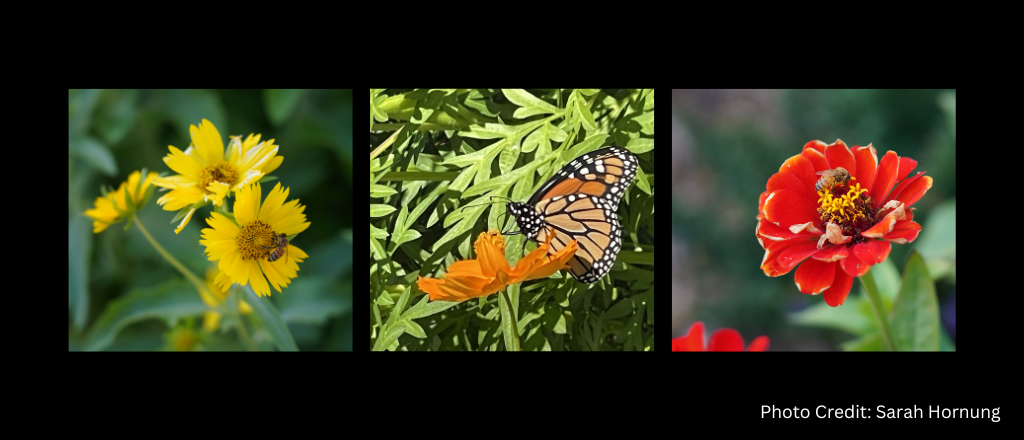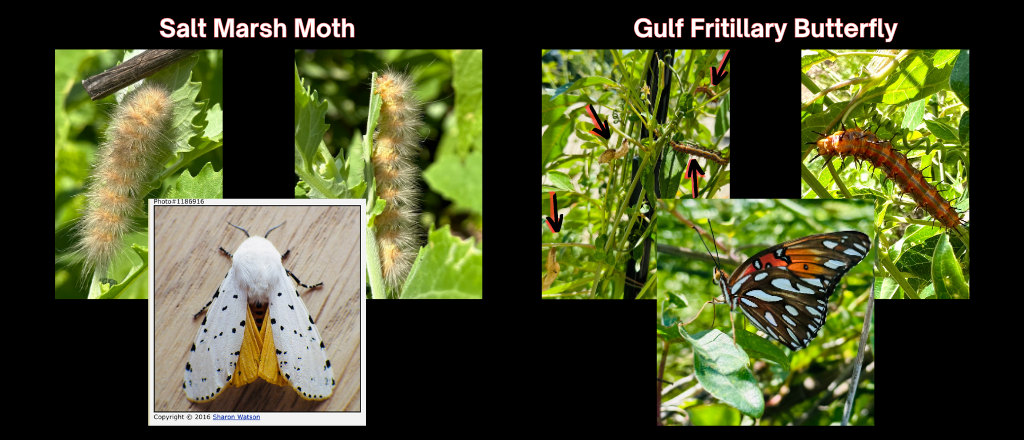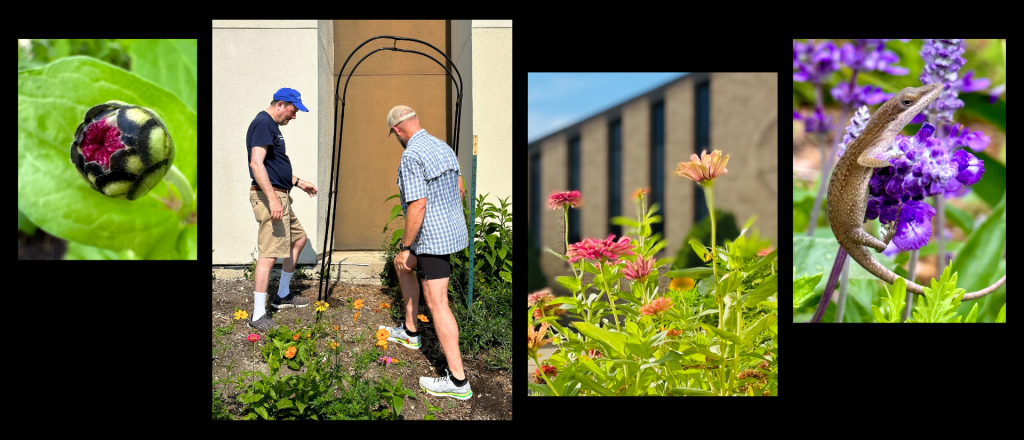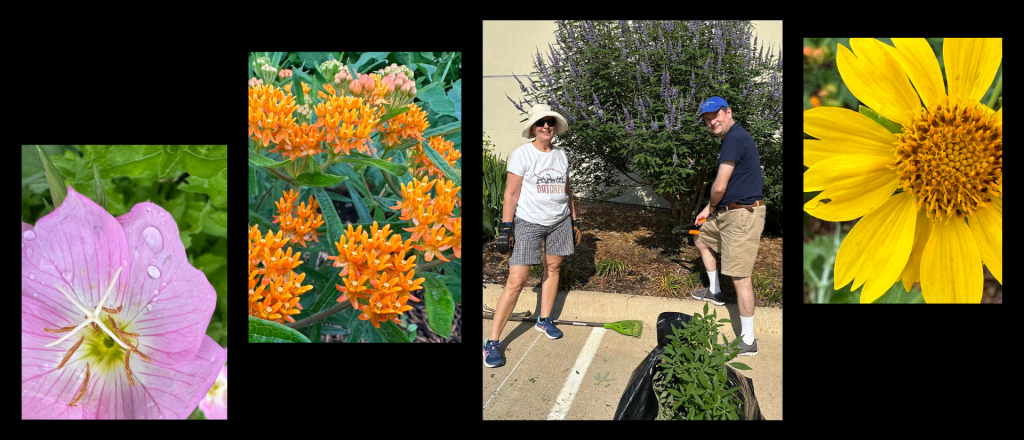The Pollinator Garden
Humans, in service to God, have special roles on behalf of the whole of creation. Made in the image of God, we are called to care for the earth as God cares for the earth.
According to Genesis 2:15, our role within creation is to serve and to keep God’s garden, the earth. “To serve,” often translated “to till,” invites us again to envision ourselves as servants, while “to keep” invites us to take care of the earth as God keeps and cares for us (Numbers 6:24-26).
Such caring, serving, keeping, loving, and living by wisdom sum up what is meant by acting as God’s stewards of the earth.
- from the ELCA Caring for Creation: Vision, Hope, and Justice
May Work Day!
Saturday, May 4th, from 9-11. Bring work gloves, any gardening tools that might be helpful like hand clippers, weeders. and trowels. Don’t forget water to stay hydrated! Please RSVP to Amanda Schulz at if you plan to attend.
In 2024, the KOG Pollinator garden was the subject of congregation member Sarah Hornung’s Girl Scout Gold Award project. The Gold Award is the highest level award offered by the Girl Scouts of America (similar to BSA’s Eagle Scout). As the object of her award, Sarah worked with volunteers and church advisors to provide a water source for the pollinators that visit the garden in spring through fall. By providing a water source for the visiting pollinators, the garden is eligible to be certified as a National Wildlife Habitat. Sarah also worked to label the plants in the garden with stones painted by KOG Sunday School youth and in preparing an informational pamphlet about the garden to be available to visitors and members of the congregation.
If you wish to start your own pollinator garden or convert your garden into one, here are some tips and tricks:
- Plant your garden in a place protected from heavy wind and has both sunny and partially sunny areas.
- To attract butterflies it is best to plant milkweeds and butterfly weeds.
- To attract hummingbirds you can plant salvia or turk’s cap.
- It is also always a good idea to include a place for pollinators to hydrate.
- Lastly, do any research on plants you are considering planting and consider factors such as pH, water need, and planting seasons, when choosing.
Some of the plants in our garden:
In Fall 2022, we had our first Monarchs visit and lay eggs on the Butterfly Weed.
In late winter, many people begin to get anxious and worry about how their gardens and flowerbeds “look.”
Image is often a concern of human beings and tends to spill over into many areas of life… even our plants. How a garden “looks,” however, is not the focus of a pollinator garden. What happens with the life inside is what truly counts. What appears as refuse to us is a refuge to hundreds of species of creatures that God placed on this earth. Overwintering chrysalises attach to structures and stems beneath dead branches. Many bee species, solitary wasps, and various moths find respite from the cold of winter in the hollow stems of bygone plants. Some Queen bumblebees even burrow into the ground and rely on the coverage of leaf debris to keep the ground warm when temperatures drop.
If you drive into the parking lot at church and wonder, “What is going on with our garden,” the simple answer is, “Exactly what God intended.”
As we wait patiently for God to bring forth new life, we honor the words of Solomon in Ecclesiastes 3, “[God] has made everything beautiful in its time.”
So, praise the decay! Wait patiently and know that when our KOG gardening team sees God’s presence of new life in the fluttering of butterflies, the flight of bees and wasps, and the marching of beetles, we will clean up our garden for spring. If you are interested in helping with projects in our pollinator garden, please email Amanda Schulz.
Be still, and know that I am the Lord. Psalm 46:10
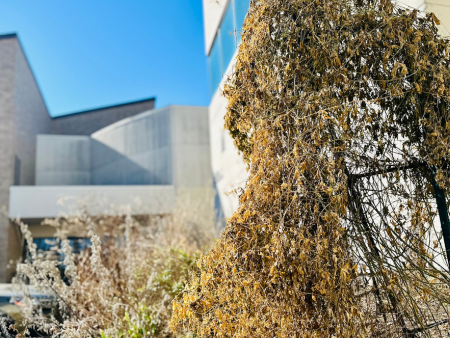
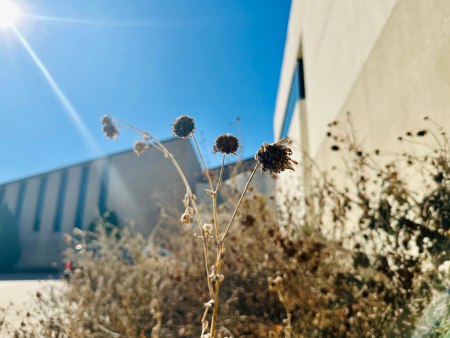
In June 2023, we officially added a new species to our garden! A gorgeous Salt Marsh caterpillar (commonly known as a Woolly Bear) was happily savoring the tender leaves of our Cowpen Daisy. These are massive caterpillars, at full maturity, measuring up to 2 inches in length. The caterpillars are tricky because they can be a very light straw color, like the one shown, or even dark black with some orange. The tell-tale signs are the “woolly” nature and that a few hairs on the caterpillar will be longer at the head and the tail. This caterpillar turns into the beautiful moth shown in the included (copy-written) photo by Sharon Watson for BugGuide.net.
The pollinator crew added an arbor in June '23 as a structure for our Bluecrown Passionflower Vine. This is a host plant for the Gulf Fritillary caterpillar and we were excited to find two Fritillary chrysalises during the workday.
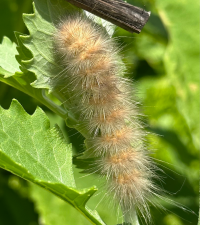
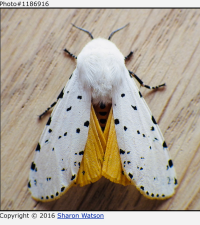
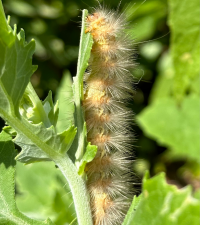
How we got started...
Pre-pandemic, church leadership worked with KOG member Amanda Schulz to design a pollinator garden with the eventual goal of placing it on the National Wildlife Federation registry as a designated wildlife habitat.
Church member volunteers worked together to remove multiple loads of stones from the site. A professional landscaping company then came in and replenished the site with good soil and installed the Liriope border. Several workdays in the fall of 2021 and spring of 2022 brought the installation of plants, sown seeds, and spreading of mulch. A few of the plants were purchased, but most were donated by volunteers, church members, or transplants. To volunteer or donate plants, contact Amanda Schulz at .
Get to know Amanda and Jon Schulz -
KOG members, Amanda and Jon, have been beekeeping since 2018 and started a company, Blackland Bees, dedicated to honey bee rescue, education, conservation, and pollination services. Learn more on their Facebook page and in an NBC 5 story!
Join us for a workday!
- Email Amanda Schulz to get updates or check back for opportunities to work together -
